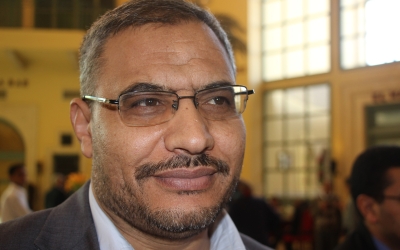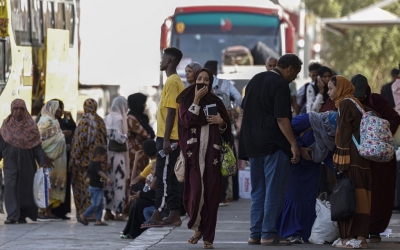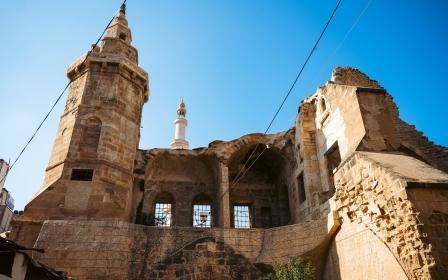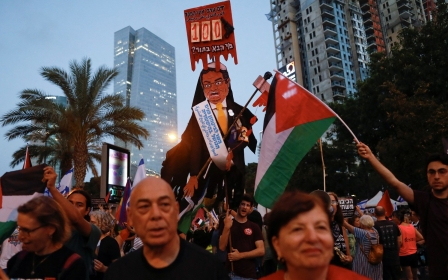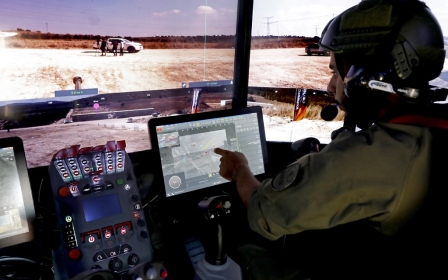Arabic press review: Concerns over deteriorating health of Palestinian president
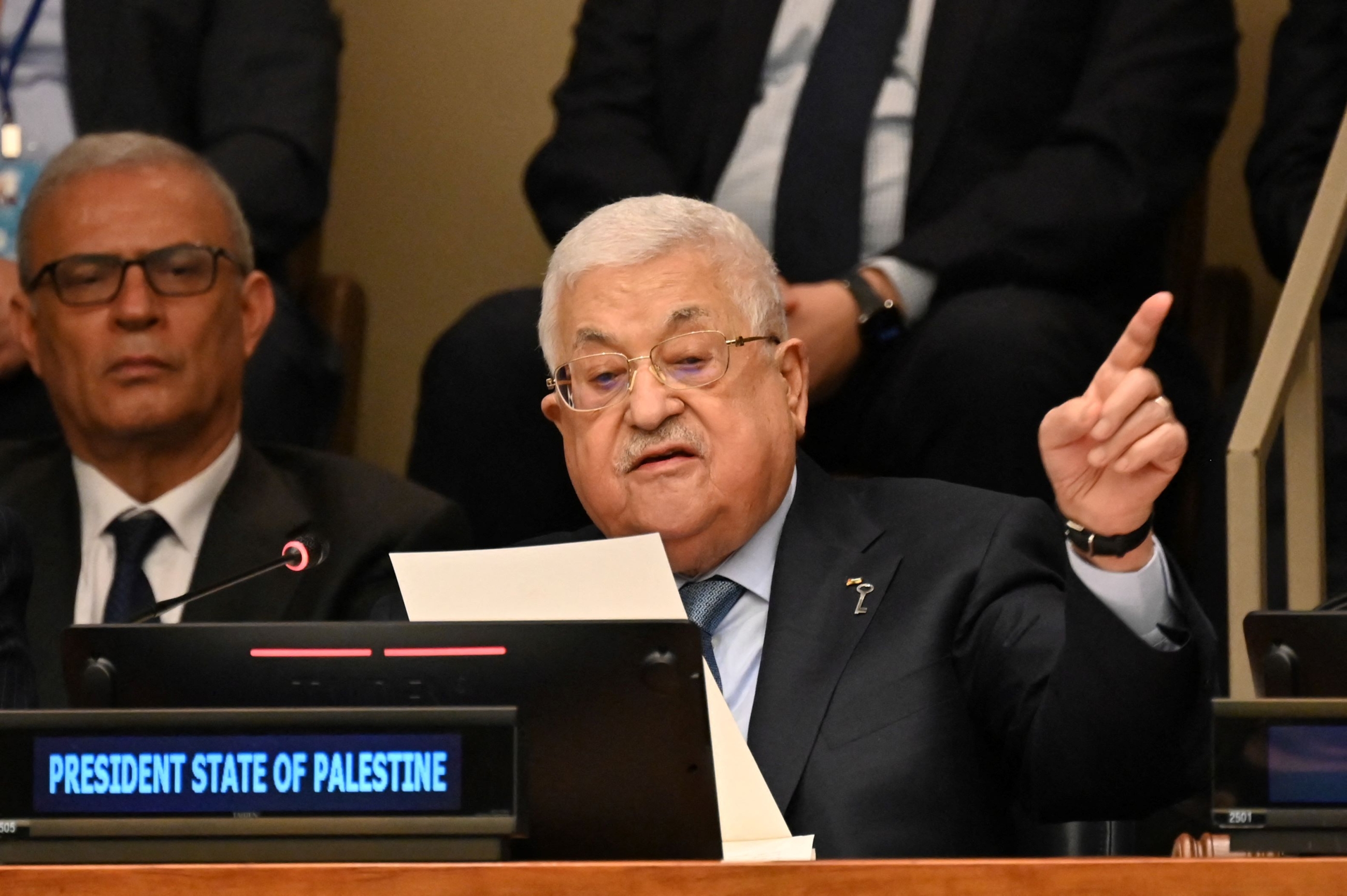
Mahmoud Abbas' poor health raises concern
Doctors flocked to the residence of Palestinian President Mahmoud Abbas in Ramallah last week as he underwent extensive medical examinations, according to the Lebanese newspaper Al-Akhbar.
Sources told the daily that "doctors were summoned several times to conduct tests for President Abbas, and in addition, [doctors] carried out urgent examinations in Jordan in secret, before he went to the United Nations".
The 87-year-old's poor health has again raised questions within the Fatah movement about who will succeed him.
Sources in Fatah said many in the leadership of the second generation and the popular base of the movement in the West Bank view Marwan Barghouti - currently jailed in an Israeli prison - as Abbas's successor, but the leadership rejects this.
New MEE newsletter: Jerusalem Dispatch
Sign up to get the latest insights and analysis on Israel-Palestine, alongside Turkey Unpacked and other MEE newsletters
The sources added that Fatah leaders had recently been investigating medical reports about Abbas's health status, and have started preparing for the post-Abbas era.
"Israel wants Fatah leader Hussein al-Sheikh or intelligence chief Majid Faraj to assume the position of president after Abbas's death, because they categorically reject armed resistance," according to Al-Akhbar newspaper.
Tunisian political prisoners on hunger strike
Five political detainees in Tunisia have announced they are going on hunger strike to protest against their detention without trial, according to the Arabi 21 website.
Among them is Ahmed al-Mashreqi, chief of staff of Ennahda Movement leader Rashid Ghannouchi, who went on a hunger strike in protest at his detention without charge.
Ennahda said in a statement that Al-Mashreqi had "entered a hunger strike in protest at his detention since 18 April".
Al-Mashraqi is the second Ennahda leader to go on hunger strike. Al-Subhi Ateeq has already been on strike for 31 days "in protest against his malicious arrest".
The Ennahda statement added that "the activist Youssef al-Nouri is also being held without interrogation or without charge," and said: "We condemn these practices that do not respect human dignity or the country's laws and customs, and we strongly condemn the abuse of political detainees."
Lawyer Mahdi Zaqrouba also went on hunger strike after he was imprisoned for revealing the involvement of Minister of Justice Leila Jaffal in corruption and conflict of interest cases, but he ended his hunger strike last Wednesday.
Muhammad Rayan al-Hamzawi, a former mayor who has been detained since last May on charges of "conspiracy against state security", continues his hunger strike after a court last Friday rejected a request for his release.
Since February, a campaign of arrests has swept Tunisia, taking in politicians, media professionals, activists, judges and businessmen.
Earlier, Tunisian President Kais Saied accused some of those arrested of "conspiring against state security and being behind the crises of goods distribution and price hikes".
Rise in sexual violence against women in Sudan
A Sudanese human rights group has warned of an increase in sexual violence related to the armed conflict in Khartoum and in Darfur, according to a report published by the London-based Al-Quds Al-Arabi newspaper.
The Unit for Combating Violence against Women and Children in Sudan revealed 14 new cases of sexual assault in Khartoum, bringing the cases of sexual violence documented by the unit to 36 in the capital alone.
However, cases reported and documented by the unit are thought to represent only around two percent of actual cases of sexual violence in Khartoum, based on eyewitness accounts and the cases monitored by the unit on social media.
The unit also said that although it had not received any direct updates from Darfur due to difficulties communicating with local authorities, the situation for women there is deteriorating.
The homes of refugee women from Eritrea and Ethiopia were also said to have been targeted in the Bahri and Omdurman regions and they had been subjected to sexual violence by the paramilitary Rapid Support Forces (RSF), according to eyewitnesses.
The unit called on all parties in the conflict to give priority to the interests of citizens, end the war, and protect civilians.
The director of the unit, Salimi Ishaq, said: "Obtaining important documented figures seems almost impossible... especially in societies that always criminalise victims and give perpetrators excuses and justifications at the expense of the dignity and psychological resilience of women and girl survivors."
Egypt recovers two artifacts from France
An Egyptian judicial delegation including Public Prosecutor Hamada El-Sawy has arrived in Paris in order to retrieve two stolen artifacts, according to the London-based Al-Araby Al-Jadeed newspaper.
El-Sawy will attend a ceremony organised by the Egyptian embassy and recover artifacts that a French court has ruled should be returned to Egypt after it was proven that they were looted and smuggled from the country.
The case is just one of a series of transnational organised crimes related to the looting and smuggling of antiquities that Egypt is helping investigate alongside other countries.
According to the Public Prosecutor's Office: "The visit came to enhance cooperation between the Egyptian Public Prosecution and the French investigation authorities."
*Arabic press review is a digest of news reports not independently verified as accurate by Middle East Eye.
Middle East Eye delivers independent and unrivalled coverage and analysis of the Middle East, North Africa and beyond. To learn more about republishing this content and the associated fees, please fill out this form. More about MEE can be found here.


